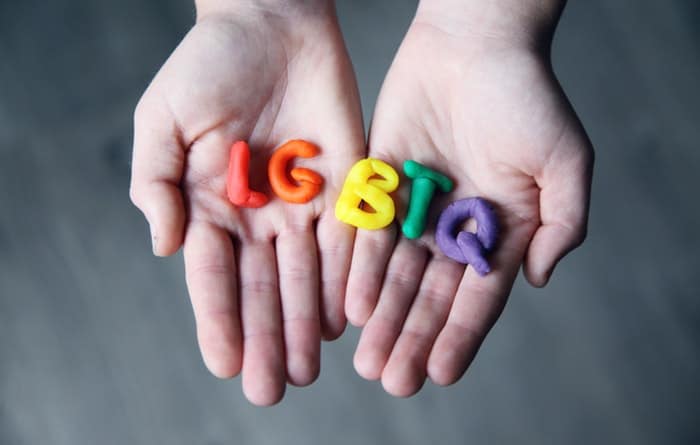Making a Will for LGBT Individuals Has Legal Complexities
 Due to the lack of a legal framework, the life of the LGBT couples in Singapore has been harder in all aspects. Despite Singapore accepting same-sex relationships, the country’s law still does not recognize marriage among these couples. The statute also does not permit them to adopt babies together. The babies may not get an inheritance or share in their matrimonial properties and other assets. With this, many are confused about appointing a Lasting Power of Attorney and making a will for LGBT.
Due to the lack of a legal framework, the life of the LGBT couples in Singapore has been harder in all aspects. Despite Singapore accepting same-sex relationships, the country’s law still does not recognize marriage among these couples. The statute also does not permit them to adopt babies together. The babies may not get an inheritance or share in their matrimonial properties and other assets. With this, many are confused about appointing a Lasting Power of Attorney and making a will for LGBT.
An Overview of LGBT Couples in Singapore
There have been deterrents, but they don’t discourage Singaporean LGBTs from becoming parents through a number of other ways. They can go through extramarital and regular marital relationships, adoption, surrogacy, insemination through donor sperm, and co-parenting.
Singapore has many such kids who are almost in complete darkness even if their parent(s) belong to the LGBT community. This is due to the legal, religious, and social stigma attached to them. Such restrictions may pull these people from coming out in the open. The national census of Singapore does not gather data on the country’s gender identity or sexual orientation of its citizens. Hence, it is not easy to figure out the number of same-sex or LGBT couples who are present locally with kids.
However, there’s an ongoing private study quite recently that ascertains these figures and meets the needs of such families can be understood properly.
Challenges LGBT Couples Face in Estate Planning and Inheritance
According to the Intestate Succession Act of Singapore that frames all the rules related to intestacy, all assets of a heterosexual and married person passes to their legal spouse, adopted or legitimate kids, as well as, other blood relatives upon his/her death. This applies even when the person has not left a Will.
However, an LGBT couple does not enjoy any such inheritance rights in Singapore. These instances happen on the event that one of them passing away without a will. Although they would have stayed together for several years and had been in love in the same way as any heterosexual couples in the country, the government apparently overlooks it.
Plus, the current laws in Singapore do not acknowledge the guardianship or parental rights of same-sex couples over a kid although the child could have been adopted by any one of them or from an earlier union. In order to bequeath the estate of an LGBT person in Singapore, the child needs to be legitimate in Singapore.
This means that he/she should have been born to straight parents. Alternatively, the child may also be from adoption. You need to remember in this context that both stepchildren and illegitimate kids are not kids of a Singaporean for the inheritance purposes.
What Happens to the Baby?
Thus, a baby born to any married gay or lesbian couple is not a legitimate child as far according to the country’s laws. As such, children may not inherit the assets of her/his LGBT parents. The only exception is if there’s valid Will where the child is one of the beneficiaries.
There can be undesirable and unintended outcomes when no valid Will by a lesbian or gay couple exists in Singapore mentioning their kids or each other as beneficiaries.
For instance, say that a Singapore resident is a lesbian and is estranged from her parents because of sexual orientation. Eventually, she is in love and weds a female co-worker and spends some happy decades together. In case she dies all of a sudden without leaving behind a Will, the “wife” will be unable to inherit properties of the deceased contrary to her wishes. Rather, it will be those estranged parents who will inherit everything.
Estate Planning by LGBT Couples in Singapore
As the prevailing laws in Singapore signify that LGBT or same-sex couples and their kids do not have the same kind of rights pertaining to inheritance, which married and straight couples do. So, the question is whether the current law gives them any kind of protection or not.
It is highly imperative to have in place three key documents in making a will for LGBT couples. This applies in case they love their kids and each other. These are as follows:
- Lasting Power of Attorney (LPA)
- Will
- Form for CPF nomination ( For permanent residents and citizens of Singapore)
LPA or Lasting Power of Attorney
The document enables a person to appoint somebody else (Donee) to ascertain the day-to-day living and care arrangements for them, as well as, take care of their finances and properties in case they have lost their mental capacity due to an accident or as a result of dementia.
It is not mandatory for a donee to be related to the person making the LPA by marriage or by blood. However, a donee has to be a minimum of 21-year-old and reliable. Plus, a donee should not be an undischarged bankrupt while having the authority to handle the finances and properties of the mentally incapacitated person who has made the LPA.
In case you have lost your mental capacity and had not made an LPA, or Lasting Power of Attorney, the Singaporean act related to the Mental Capacity enables anyone to make a formal application to the court for becoming your deputy or representative and for making decisions on your behalf. The person who can make this application is typically a close friend, relative or can even be a close family member.
The procedure is quite a lengthy and expensive on as opposed to making your Lasting Power of Attorney. In fact, even people not so close to you may eventually have complete control over your living arrangements, care, and financial affairs. When your partner depends on you for financial matters, your mental incapacitation can lead to freezing of assets and other finances, leaving them in a pretty bad state.
A Lasting Power of Attorney should be duly certified by an accredited practitioner, psychiatrist, or a lawyer. The document can be nullified on any occasion when a person is of a sound mind.
Making a Will for LGBT: Do’s and Don’ts
Making a Will for LGBT is of paramount importance if a couple has a long-term relationship. In fact, it is the sole solution within the legal framework for couples belonging to the same-sex in the country if they want to finalize who should be authorized for ensuring that their final wishes are adhered to (Executors), person (s) who will act as the legal guardian for their adopted pet or child, which charity organizations to get donations, and so on.
A Will is extremely important when one of the partners is dependent on the other for financial matters or when the said couple has a young kid.
Applications for Adoption Cases
In case there is an untoward situation in the couple’s life, and they had adopted a child, the latter would turn into an orphan. On the other hand, if a Will was made, there would be the executor (s) they trust and rely upon who can take care of their adopted kid by acting as his/her legal guardians. In fact, the guardian can be the deceased’s husband or wife, a family member, a trusted friend, or even a close neighbor. A person should not allow social services or a judge to make an important decision for his/her kid.
If a citizen of Singapore has a kid, it is also advisable to make a Will. While such a Will can have simple words, it will make sure that a non-biological parent will get the right of becoming a guardian.
When a biological but unmarried mother passes away without writing a Will, her kid will ideally go to her parents or siblings. When there is no Will, the same-sex partner will not get anything.
Being a Guardian
In fact, it is immaterial even if the LGBT couple wanted to be co-parents. According to the law, the biological family of the biological mother will get custody of that kid. So, the biological mother should mention in her Will who the legal guardians of her child would be. In case the kid is below 21-year-old, it would be different. The executor can appoint two guardians when a portion of her estate needs to be passed to the kid, While the kid can have one guardian, there should be two trustees to hold that estate in a trust until the child becomes 21-year-old.
In other words, it is not right to think that just because a person is young, they can postpone the making of a Will until they are 50-year-old. After all, an accident can occur at any time, so you should always be ready. It is recommended to write a Will when a woman becomes pregnant. So, even if anything happens in a hospital’s labor room, she is prepared. As a Will does not constitute of CPF, a CPF nomination is also needed.
Importance of Couples Making a Will for LGBT Separately
Both the partners should write their separate Wills. Imagine what will happen to your child when both of you pass away at the same time. When both the partners pass away at the same time, the older partner’s estate goes to the younger person. The estate owned by the latter has to be distributed as per the directions are given in the Will.
Plus, the Will of the younger partner has to clearly mention who will get their child when he/she passes away. Meanwhile, the persons who would then act as the guardians. In case you are nominating the guardians, you need to engage in a conversation with them. After all, you cannot simply dump your kids to simply anyone when you are not alive.
Additional Things to Consider
You also need to inform them about your decision, and they should have their agreement. You should also make sure that your child gets enough chunk of your estate. As a result, the guardian who would bring up your kid does not have to go through financial constraints. Also, purchase a life insurance policy for yourself.
There is a solid reason to appoint multiple guardians in your Will. Imagine a situation where you had named only one guardian in your Will, and he/she refuses to take up that responsibility after your death. In fact, it is also possible for you to mention in your Will that in case the first guardian has a change of mind. In this case, the second person named in the Will should act as your child’s legal guardian.
If there is a Will, even the parents cannot challenge its contents although they disapprove the relationship. One great feature of Singapore law is its great clarity. As such, it is not advisable to prepare your Will all by yourself. It is better to go to a reputable attorney’s office to process the document. When you have written a Will, challenging it is quite tough as Singapore law is very clear about all these.
The nomination of Central Provident Fund or CPF
CPF or Central Provident Fund savings are not a part of the estate of any Singapore resident. As such it can never be distributed by making a Will. If you belong to the LGBT community and want your partner to benefit the funds of your CPF, you need to nominate him/her as a beneficiary of your CPF savings. Do this by filling up the nomination. Otherwise, the country’s Intestate Succession Act will be applicable. As a result, your partner would not even get a single penny from your CPF monies. Hence, filing a nomination for your CPF is as crucial as making a Will.
Final Words
Singapore is not an LGBT-friendly country, especially with respect to matrimonial and inheritance laws in the country. However, it is still important for LGBT people to do their estate planning. If you too belong to the LGBT community, you should take care of what the country’s law works in your favor. So, plan your estate inheritance as soon as possible so that your loved ones will benefit fully.
As an LGBT individual, the law may not be that accepting as of now. However, the world is progressing, and changes with the law in favor of LGBT is possible. So if you are making a will for LGBT, just continue doing so. If you need help regarding your estate planning in Singapore, you can contact us. We do not discriminate.










